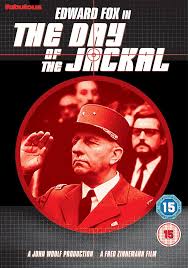The Day of the Jackal: Exploring Its Cultural Legacy

Introduction
‘The Day of the Jackal,’ a seminal thriller novel by Frederick Forsyth published in 1971, remains a vital part of both literary and cinematic history. The story revolves around an anonymous assassin hired to kill French President Charles de Gaulle, and its intricate plotting and careful character development present a compelling narrative that resonates even today. As major geopolitical events unfold in contemporary society, the themes of political intrigue, assassination attempts, and the confluence of individual ideology and state power highlighted in Forsyth’s work hold significant relevance.
Impact on Literature and Film
The novel was adapted into a successful film in 1973, directed by Fred Zinnemann, which further elevated its popularity. Both versions of the story showcase an anti-hero protagonist who operates in the shadows, creating a suspenseful atmosphere that captivates audiences. Forsyth’s meticulous attention to detail and the realistic portrayal of the assassin’s methods have influenced many subsequent thrillers, establishing a template for political thrillers in literature and film.
The portrayal of Jackal, the main character, is a nuanced one; he is depicted as highly competent, strategic, and almost apolitical, sparking discussions about the motivations behind political violence. The film and book both explore how individuals can become agents of change or destruction based on their beliefs, a theme that is particularly poignant in today’s global climate.
Continued Relevance
As political disruptions and assassinations remain a topic of discussion in modern times, ‘The Day of the Jackal’ continues to serve as a prescient commentary. Various nations still grapple with regime changes, counterterrorism efforts, and the ethics surrounding state-sponsored violence. Forsyth’s work invites readers and viewers alike to consider the larger implications of taking justice into one’s own hands.
Conclusion
‘The Day of the Jackal’ is more than just a story of suspense; it is a reflection on the darker sides of human ambition and the political machinations that shape the world. As readers or viewers engage with this classic narrative, they are invited to ponder the moral complexities surrounding the pursuit of political ends through violent means. The continual adaptation and discussion of ‘The Day of the Jackal’ underscore its significance, ensuring that it remains a timeless thriller with relevance for generations to come.









